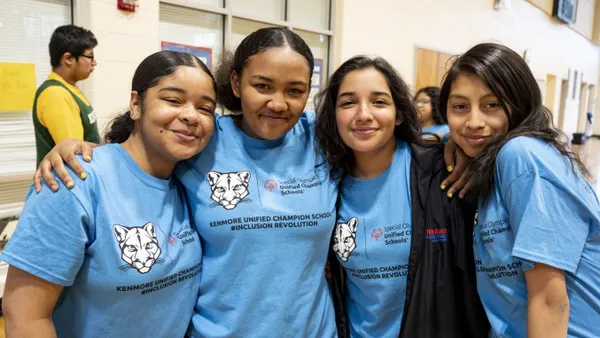Dive Brief:
- Chicago Public Schools announced this week that 10 more high schools will join its Opportunity Schools program, bringing the total number of schools participating in the program to 60, Chalkbeat reports.
- The program, which began in 2016, targets early-career teachers for recruitment to work in high-needs schools, pairing them with veteran educators who serve as mentors and providing monthly coaching and professional development in small-group settings.
- Of the roughly 500 early career teachers — those with one to three years of teaching experience — already participating, two-thirds teach subjects like special education that are in high demand and short supply, and more than half are teachers of color. The district reports the one-year retention rate at participating schools increased by 19% since the 2016-17 school year, to 67% in 2017-18.
Dive Insight:
Teacher recruitment is the top concern for superintendents, according to a Gallup poll conducted last August. The challenge of retaining teachers is even harder, especially when it comes to those fairly new to the game.
Most new and early-career teachers approach their jobs with a bright, shiny idealism that can be quickly shattered as they often deal with tougher work-loads than veteran teachers and are frequently placed in schools with higher levels of poverty, which makes the challenge even tougher.
However, experts say providing better methods of preparation and teacher collaboration can help address the issue of retention, especially in these early years. Building teaching career ladders is another important strategy, as the prospect of upward mobility provides an incentive for improvement and growth.
These career ladders can be designed internally or with the help of organizations like Public Impact, whose Opportunity Culture model provides methods of advancement that don’t take good teachers out of the classroom.
Providing proper training and support can be done through several models. Teacher mentoring programs are often effective because they pair a less-experienced teacher with a veteran who can offer instruction, guidance and support. Principals can also play a role by creating stronger bonds between the teacher and school leadership, and residency programs offer another, more intensive approach to mentoring new teachers.
Losing good teachers can have a significant impact on student achievement, especially if it occurs mid-year. School and district leaders need to consider other factors that also affect teacher retention to counter this. Changing a school’s culture can help create an environment that encourages both teacher and principal retention, which is also high.
In high-needs districts, increasing mental health staffing and resources can improve school culture and teacher retention. By looking at ways to improve the school environment to retain teachers, students are sure to benefit as well.







 Dive Awards
Dive Awards






